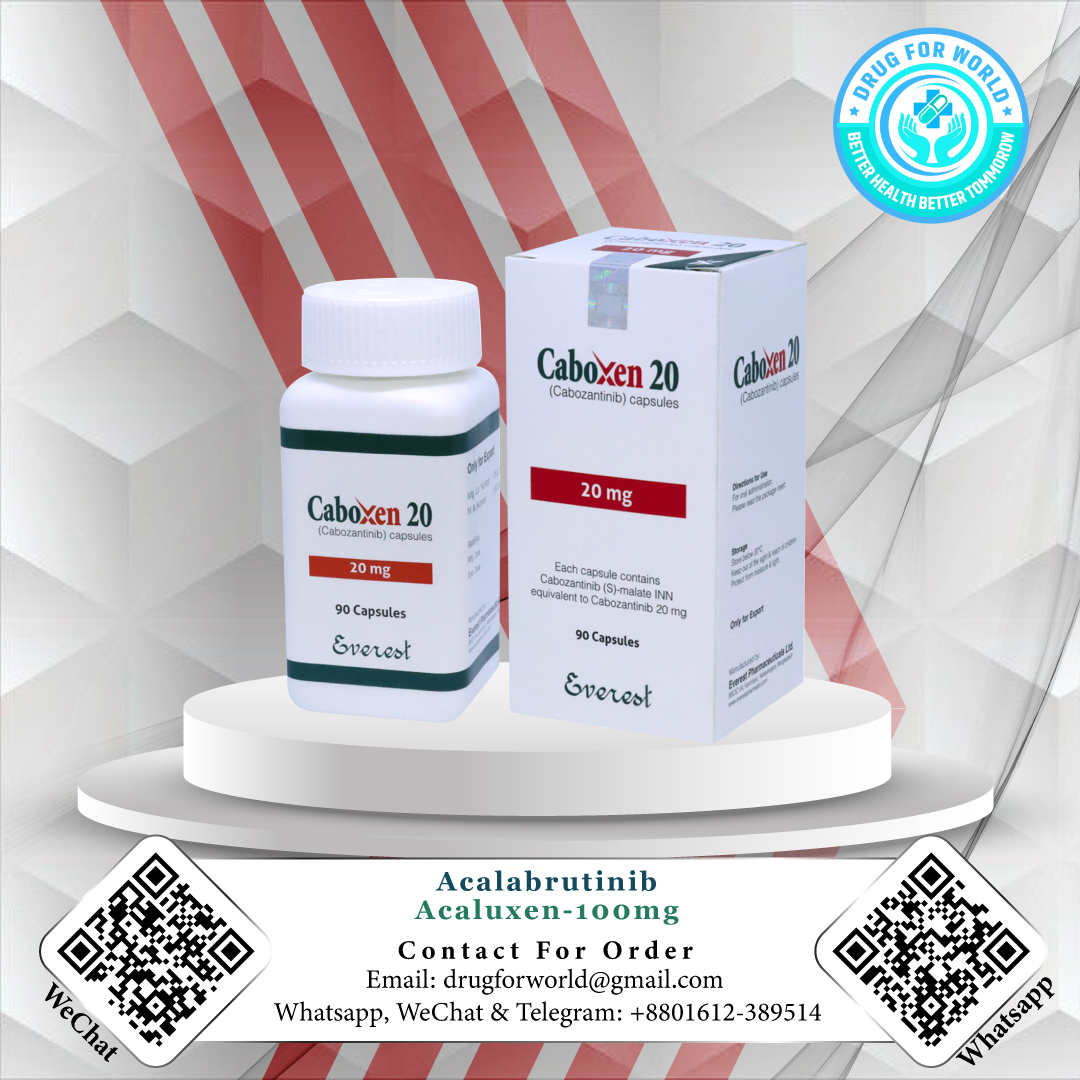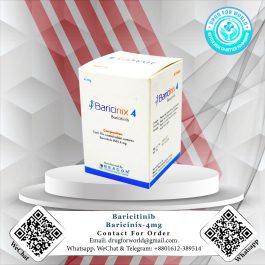Caboxen 20mg
Caboxen-20mg is a widely prescribed medication used to manage various medical conditions. It plays an important role in treating a number of ailments, thanks to its effectiveness and minimal side effects. In this comprehensive guide, we’ll cover everything you need to know about Caboxen-20mg, including its indications, pharmacology, dosage recommendations, interactions, side effects, and much more. Let’s dive into this detailed product overview
Description
What Is Caboxen-20mg?
Caboxen-20mg is a pharmaceutical medication commonly used for managing specific health conditions, particularly those involving inflammation and pain management. Available in the 20mg strength, Caboxen is a prescription-only medicine and should be taken under the supervision of a healthcare provider to ensure safety and effectiveness.
Indications: When Is Caboxen-20mg Prescribed?
Many conditions can be treated with caboxen-20mg. The following are the main indications for this medication:
-
Chronic Pain Relief
Caboxen-20mg is often prescribed to manage chronic pain in conditions such as osteoarthritis and rheumatoid arthritis. Its anti-inflammatory properties make it particularly effective for joint pain and inflammation, providing significant relief to patients suffering from these chronic conditions.
-
Acute Pain Relief
For patients experiencing severe pain from acute injuries or surgeries, Caboxen-20mg can help reduce inflammation and manage pain, enabling quicker recovery.
-
Inflammatory Conditions
Caboxen is effective in treating a range of inflammatory conditions, including gout, tendinitis, and other musculoskeletal disorders. It helps control the swelling, pain, and discomfort caused by these conditions.
-
Fever Management
Sometimes prescribed to manage fever associated with inflammatory conditions or infections, Caboxen-20mg can bring down body temperature, offering comfort during illness.
Pharmacology: How Does Caboxen-20mg Work?
- Caboxen-20mg belongs to the Nonsteroidal Anti-Inflammatory Drugs (NSAIDs) class. Because of its anti-inflammatory and analgesic (pain-relieving) qualities, NSAIDs are often utilized. The primary mechanism by which Caboxen works is:
- Inhibition of Cyclooxygenase (COX) Enzymes: Caboxen inhibits the COX-1 and COX-2 enzymes, which are responsible for producing prostaglandinsProstaglandins are bodily molecules that increase temperature, discomfort, and inflammation.. By blocking these enzymes, Caboxen reduces inflammation and alleviates pain.
- Reduction in Prostaglandin Synthesis: By lowering prostaglandin levels, Caboxen helps reduce pain, swelling, and fever, thus improving the patient’s quality of life.
Dosage and Administration: How to Use Caboxen-20mg
Caboxen-20mg should be used according to the prescribed dosage by your healthcare provider. The following are general guidelines for dosing, but you should always follow your doctor’s advice:
- For Chronic Pain: The usual adult dosage is 20mg once or twice a day, depending on the severity of the condition.
- For Acute Pain: The dosage for acute pain relief is typically 20mg initially, followed by additional doses as needed. The dose may be increased depending on the severity of pain.
- For Inflammatory Conditions: The recommended dose for inflammatory conditions like arthritis or tendinitis is typically 20mg once or twice daily, with a potential dose increase based on response.
It is best to take Caboxen with food or milk to reduce stomach irritation. Never take more than the prescribed dose, as overuse of NSAIDs can lead to serious side effects.
Drug Interactions: Things to Watch Out For?
Caboxen-20mg may interact with several other medications. It’s important to inform your doctor of all the drugs, supplements, and herbal products you are currently taking. Some key drug interactions include:
-
Anticoagulants (Blood Thinners):
Taking Caboxen with blood thinners like warfarin or aspirin may increase the risk of bleeding, as both drugs can affect platelet function and increase blood thinning.
-
Antihypertensive Medications:
Combining Caboxen with antihypertensive drugs (e.g., ACE inhibitors, diuretics, or beta-blockers) can reduce the effectiveness of these medications, leading to possible complications in controlling blood pressure.
-
Other NSAIDs:
Using Caboxen alongside other NSAIDs or corticosteroids can significantly increase the risk of gastrointestinal bleeding or ulcers.
-
Lithium:
Caboxen may raise blood levels of lithium, increasing the possibility of lithium poisoning. Regular monitoring of lithium levels is essential if both medications are used concurrently.
-
Methotrexate:
Taking Caboxen with methotrexate, a chemotherapy drug, can enhance the toxicity of methotrexate, leading to harmful side effects.
Always check with your healthcare provider before starting any new medication, including over-the-counter drugs, to avoid potential interactions.
Side Effects: What Are the Potential Risks?
Like all medications, Caboxen-20mg can cause side effects. While most people tolerate it well, some may experience mild or serious reactions. Common side effects include:
-
Gastrointestinal Distress:
The most common side effects of NSAIDs like Caboxen include stomach upset, nausea, indigestion, or diarrhea. In rare cases, it can lead to ulcers or gastrointestinal bleeding.
-
Headaches and Dizziness:
Some individuals may experience headaches, dizziness, or lightheadedness, especially when standing up quickly.
-
Allergic Reactions:
Though rare, some people may have allergic reactions to Caboxen. Symptoms of an allergy include rash, itching, swelling, or difficulty breathing. Seek medical attention immediately if you experience these signs.
-
Kidney or Liver Dysfunction:
Prolonged use of Caboxen can affect kidney or liver function. Symptoms of kidney issues include swelling, fatigue, and changes in urination.Skin or eye yellowing are indicators of liver problems.
-
Elevated Blood Pressure:
Long-term use of NSAIDs may lead to elevated blood pressure in some individuals. Regular monitoring is recommended for patients with pre-existing hypertension.
If you have any serious adverse effects, stop taking Caboxen and get in touch with your doctor right away.
Pregnancy and Lactation: Is Caboxen Safe During Pregnancy or Breastfeeding?
Pregnancy:
Caboxen should be avoided during pregnancy, particularly during the third trimester, as it may harm the fetus. It can cause premature closure of the ductus arteriosus (a vital blood vessel in the fetus) and affect kidney function. Always consult your doctor if you are pregnant or planning to conceive before using Caboxen.
Lactation:
Caboxen is excreted into breast milk in small amounts. While it is generally considered safe for short-term use during breastfeeding, prolonged use or high doses should be avoided. Always discuss with your healthcare provider if you are breastfeeding before using this medication.
Precautions and Warnings: When Should You Use Caboxen with Caution?
Before using Caboxen, it’s important to consider any pre-existing medical conditions or health concerns that may affect its use. Precautions include:
1. Gastrointestinal Disorders:
If you have a history of peptic ulcers, gastrointestinal bleeding, or any other GI issues, you should use Caboxen with caution, as it may worsen these conditions.
2. Heart Conditions:
Caboxen may increase the risk of heart attack or stroke in individuals with pre-existing heart conditions. Use the drug with caution if you have heart disease, high blood pressure, or a history of stroke.
3. Renal and Hepatic Impairment:
Patients with kidney or liver disease should use Caboxen under close medical supervision. The drug may exacerbate kidney or liver dysfunction.
4. Asthma:
Those with asthma or other respiratory issues may be at risk of an asthma attack when taking NSAIDs like Caboxen. Consult with your doctor if you have asthma before using this medication.
Use in Special Populations: Special Considerations
Elderly Patients:
Older adults may be more sensitive to the effects of Caboxen, especially when it comes to kidney function and the risk of bleeding. Elderly individuals may require lower doses and more frequent monitoring.
Children:
Caboxen is not typically recommended for children under 12 years of age unless prescribed by a doctor. Its safety and efficacy in pediatric patients have not been established.
Therapeutic Class: What Type of Medication Is Caboxen-20mg?
Caboxen-20mg belongs to the NSAIDs (Nonsteroidal Anti-Inflammatory Drugs) therapeutic class. This class of medications is primarily used to reduce inflammation, pain, and fever. NSAIDs are commonly prescribed for conditions such as arthritis, musculoskeletal pain, and inflammation-related disorders.
Storage Conditions: How Should Caboxen-20mg Be Stored?
Caboxen-20mg should be stored in a cool, dry place, away from direct sunlight and moisture. The medication should be kept in its original packaging and out of reach of children. The recommended storage temperature is between 15°C and 30°C (59°F and 86°F).










Reviews
There are no reviews yet.